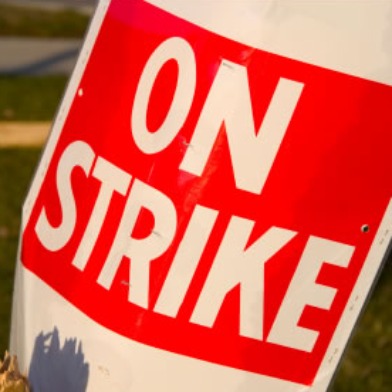 Last Friday, the Transit Workers Union Local 250-A, representing the Muni operators, quietly began the week-long voting process allowing them to call a strike if negotiations with MTA leadership, already in their second month, go south.
Last Friday, the Transit Workers Union Local 250-A, representing the Muni operators, quietly began the week-long voting process allowing them to call a strike if negotiations with MTA leadership, already in their second month, go south.
Strikes are strictly forbidden by the City Charter, which is why the union and MTA management are required to enter into binding arbitration if they fail to reach an agreement when the fiscal year ends this June.
The union stated distributing this flier about the vote to its membership sometime last week. “San Francisco has plenty of money,” the flier reads. “Our salaries and pensions are not the problem! Operators are an asset to San Francisco.”
Members of the media (Including the Appeal) were alerted to this flier by a press release from Goodyear Peterson, the outside PR agency the SF MTA has employed in a $100,000 contract “to handle outreach efforts related to the agency’s labor negotiations with its transit operators union.”
A strike appears to be in direct response to last year’s passage of Proposition G, which not only eliminated some pay guarantees for operators but required arbiters to consider what impact their decision would ultimately have on the transit agency’s overall level of service.
The union has sued the city in State Superior Court arguing that the measure, “render[s] the good-faith bargaining procedure mandated by state law impermissibly onerous and illusory (and) … effectively prohibits an arbitrator from ruling in the unions’ favor on important and mandatory subjects of bargaining.”
At issue are the $26 million in concessions MTA wants to get from the union to cover the $19 million budget deficit the agency is facing this year. The cuts would eliminate paid lunchtime, increase the use of part-time operators, eliminate the 8% pay boost for working the night shift and force drivers to pay the employee contribution toward their pensions.
Because striking is technically off limits for all city employees, exactly what would happen in the event of a strike is unclear. Union secretary-treasurer Walter Scott said, “the legal aspect of that provision is a gray area, and one that could be tested.”
The Appeal attempted to reach representatives from the operators union multiple times by phone, but calls were not returned at publication time.
Muni’s new PR point man, and former Chronicle reporter Charlie Goodyear told…umm…the Chronicle that, ”we don’t think (the strike vote is) helpful or productive at this point.”
The voting period closes on Thursday, at which point we’ll see if Muni has the authority to go though with a city-crippling strike.
Want more news, sent to your inbox every day? Then how about subscribing to our email newsletter? Here’s why we think you should. Come on, give it a try.









